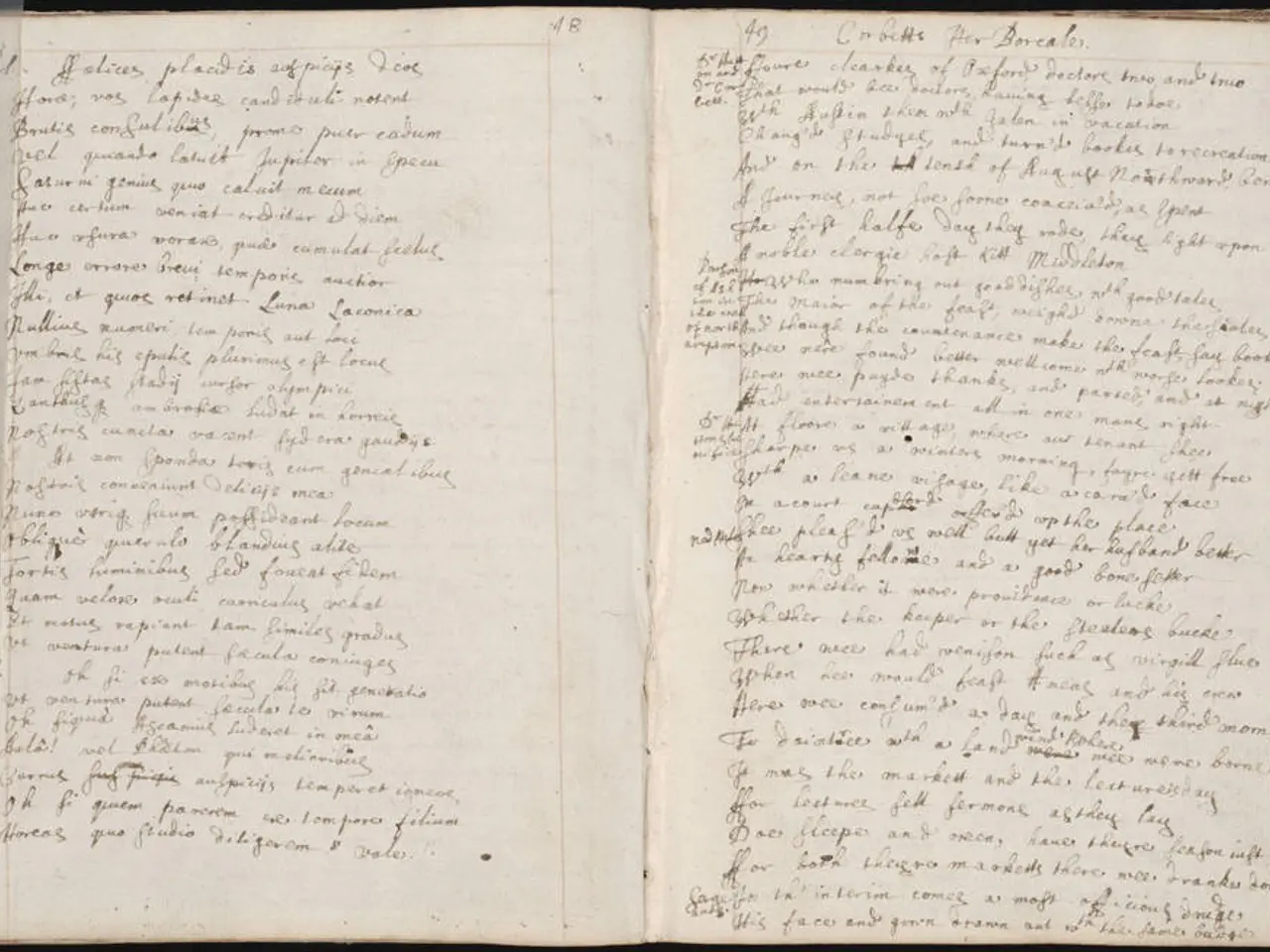Instructions for Composing a Successful TOK Essay
In the realm of the International Baccalaureate Diploma Programme, the Theory of Knowledge (TOK) essay is a platform for students to demonstrate critical thinking and effective communication skills. To craft a successful TOK essay, focus on three key areas: structuring arguments, choosing engaging titles, and integrating real-world examples.
**Structuring Arguments**
The Knowledge Framework (KF) serves as a valuable tool for organising arguments. By exploring Areas of Knowledge (AOKs) through the KF’s elements - Scope, Perspectives, Methods and Tools, and Ethics - you can showcase a multi-dimensional understanding of knowledge and strengthen your analysis by clearly addressing how knowledge is constructed and challenged in different contexts [1].
Develop clear Knowledge Questions (KQs) that emerge naturally from your title and thesis. Each paragraph should focus on addressing a KQ, supported by evidence and analysis. Present counterarguments and contrasting viewpoints to demonstrate critical thinking and balance, which is highly valued in TOK essays [2][3].
**Choosing Engaging Titles**
Pick titles that are both clear and thought-provoking, encouraging deep inquiry into the nature of knowledge, truth, or belief. Titles should give insight into the debate and the specific knowledge areas you will explore [4]. Engage with the title by breaking it down: ask what is the claim? What assumptions does it hold? And what knowledge issues arise? This will help you stay focused and relevant to the prompt [2].
**Integrating Real-World Examples**
Use concrete examples from various sources such as history, science, politics, arts, or your personal observations. Examples should be directly relevant and clearly linked to your argument to strengthen your claims [5]. Incorporate examples of knowledge claims and trust—how societies accept or reject knowledge claims—which is a common TOK theme. For instance, discussing scientific consensus versus public skepticism can illustrate knowledge acceptance [3].
Balance examples across different AOKs and Ways of Knowing (WOKs) to show breadth and depth. Avoid overly obscure or irrelevant examples. Instead, aim for well-understood, relatable cases that clarify your ideas and engage your reader [5].
By combining a structured approach based on the Knowledge Framework, selecting a compelling title that frames insightful knowledge questions, and integrating well-chosen, relevant real-world examples, your TOK essay will be clear, analytical, and engaging. This methodology will help demonstrate your understanding of knowledge issues and critical thinking skills essential for success in TOK.
[1] International Baccalaureate. (2021). Theory of Knowledge: Approaches and Methods. Retrieved from https://www.ibo.org/programmes/diploma-programme/subjects/theory-of-knowledge/approaches-and-methods/
[2] International Baccalaureate. (2021). Theory of Knowledge: Guidelines for Assessing Internal Assessment. Retrieved from https://www.ibo.org/programmes/diploma-programme/subjects/theory-of-knowledge/assessment/internal-assessment/
[3] International Baccalaureate. (2021). Theory of Knowledge: Resources for Teachers. Retrieved from https://www.ibo.org/programmes/diploma-programme/subjects/theory-of-knowledge/resources-for-teachers/
[4] International Baccalaureate. (2021). Theory of Knowledge: Guidelines for Assessing Internal Assessment. Retrieved from https://www.ibo.org/programmes/diploma-programme/subjects/theory-of-knowledge/assessment/internal-assessment/
[5] International Baccalaureate. (2021). Theory of Knowledge: Resources for Teachers. Retrieved from https://www.ibo.org/programmes/diploma-programme/subjects/theory-of-knowledge/resources-for-teachers/
For effective TOK essay writing, curate a question bank from your title and thesis, leveraging study notes that emerge from the Knowledge Framework's exploration of Areas of Knowledge, Perspectives, Methods, Tools, and Ethics. When asking Knowledge Questions, ensure a multi-dimensional understanding of knowledge by addressing how it is constructed and challenged in different contexts.
To secure personal growth and succeed in the education-and-self-development journey of crafting a TOK essay, develop the habit of integrating examples from various fields, such as history, science, politics, arts, and personal observations, to demonstrate a strong connection between theory and real-world applications. This will foster personal growth by improving critical thinking and critical self-awareness, and contribute to overall learning.




